In order to make a more objective and fair evaluation, we present it in the form of scores and make the following settings:
Strategy, tactics, and military theory are divided into four levels: strong, medium, average, and weak, with corresponding scores of 100. , 80, 60, 40 points.

The chief priest of the Wu Temple:
Jiang Shang
is known as the ancestor of military strategists and the sage of martial arts. The military commander of the Zhou Kingdom, assisted King Wu to destroy Shang and conquer Zhou, and established the Zhou Dynasty; The founding king of the Qi Kingdom , he strengthened the country and enriched the people, turning the small and remote country into a big country in the East; assisted Duke Dan of Zhou to quell civil strife and expand the territory. , to promote the rule of Chengkang.
In terms of military affairs, Jiang Shang's main achievements include: adopting the strategy of cutting off his wings, sending troops to destroy the vassal states of the Shang Dynasty such as Chong, Mixu, and Quanyi; in the Battle of Muye, he used "three hundred chariots and three thousand tigers" "He has 45,000 soldiers" and defeated Shang Zhou's 700,000 troops. He is the author of "Tai Gong's Art of War" (i.e. "Six Tao") and is known as the ancestor of military strategy.
Jiang Ziya's score is:
Strategy: 100 points, tactics: 60 points, military theory: 100 points. Total 260 points.
Ten Philosophers of the Martial Temple
Bai Qi
The first of the four famous generals of the Warring States Period. During his more than 30 years as a general of the Qin State, he attacked more than 70 cities and wiped out more than a million enemies. He was known as the "No. 1 Killer of the Warring States Period".
Main achievements: Battle of Yique, defeated the allied forces of Han, Wei, and Eastern Zhou Dynasty, killed 240,000 enemies, and captured five cities; Battle of Huayang, defeated the combined forces of Wei and Zhao, beheaded 150,000 people; Battle of Xingcheng, defeated the Korean army , captured 9 cities and killed 50,000 enemies; in the battle of Changping, 400,000 soldiers were killed and surrendered.
From the perspective of military characteristics, Bai Qi is good at pursuit warfare and field attack, and is known as the "King of Field War". In terms of strategy, Bai Qi first annihilates the enemy, and secondly attacks the city.
Bai Qi's score is:
strategic aspect: 60 points, tactics: 100 points, military theory: 0 points. Total 160 points.
Han Xin
One of the three heroes of the early Han Dynasty, one of the four sages of military strategists, a representative figure of the " military strategist " of Chinese military thought, and was regarded as a "soldier fairy" and "divine commander" by later generations. Xiao He praised him as "the unparalleled scholar in the country", Liu Bang commented on him: "You must win in battle, and you must capture in attack". People in the Chu and Han Dynasties commented: "His achievements are unparalleled, and his tactics are unmatched in the world."
Main achievements: In terms of strategy, it is recommended that Liu Bang raise his troops eastward and seize the Three Qin Dynasty. In terms of tactics, as the commander-in-chief, he captured Wei, replaced him, defeated Zhao, threatened Yan, attacked Qi in the east, and destroyed Chu in the south. In terms of military theory, he compiled military books with Zhang Liang and wrote three chapters of "Han Xin" on the Art of War.
Han Xin's score is:
Strategic aspect: 80 points, tactics: 100 points, military theory: 60 points. Total 240 points.
Zhuge Liang
The only person in history who entered both the martial arts temple and the Confucian Temple, he is a representative figure who "dedicated himself to death".
Main achievements: Offering a three-point plan for the world - Longzhong Dui; capturing Meng Huo seven times and pacifying Nanzhong; conquering the Central Plains five times; improving continuous crossbows , inventing wooden ox and flowing horse, and creating eight formations; author of "Southern Expedition" ", "Northern Expedition", "Northern Expedition" and other military works.
Zhuge Liang's score is:
Strategy: 80 points, tactics: 60 points, and military theory: 40 points. Total 180 points.
Li Jing
The God of War of the Tang Dynasty, one of the ten wise men of the martial arts temple, known as Li Weigong in the world.
Main achievements: Nanping Xiao Mian; destroyed the Eastern Turks in the north; defeated Tuyuhun in the west; authored several military books such as "Li Weigong's Art of War", "Li Jing's Mirror of the Sixth Army", and "Tang Taizong Li Weigong's Questions and Answers" compiled by later generations. , included in the "Seven Books of Martial Arts" during the Northern Song Dynasty, is a representative work of ancient military science.
Li Jing's score is:
Strategy: 40 points, tactics: 100 points, military theory: 80 points. Total 220 points.
Li Ji
One of the twenty-four heroes of Lingyan Pavilion and one of the "Ten Philosophers of the Martial Temple".
Main achievements: In the Battle of Yinshan, he teamed up with Li Jing to destroy the Eastern Turks; he followed Li Shimin to conquer Goryeo and pacified Liaodong; Wude Ge built a mountain to defeat the Turkic Xue Yantuo tribe, the big leader surrendered, and the Khan fled, pacifying Mobei.
Li Ji's score is:
Strategic aspect: 60 points (Gao Zongchao, responsible for presiding over foreign strategy), tactics: 80 points, military theory: 0 points. Total 140 points.
Zhang Liang
One of the three heroes of the early Han Dynasty, and a sage seeker among the "Fourteen Saints" in ancient times. Liu Bang once praised him for "strategic planning and decisive victory thousands of miles away."
Main achievements: Persuading Liu Bang to attend the Hongmen Banquet He spoke softly, preserved his strength, and channeled Xiang Bo, allowing Liu Bang to escape smoothly; he proposed to Liu Bang not to establish the descendants of the Six Kingdoms, unite with Peng Yue, and reuse Han Xin and other strategies; in the later period of the Chu-Han War, he advocated taking advantage of the victory to pursue Xiang Yu and annihilate the Chu army.
Zhang Liang's score is:
Strategy: 100 points, tactics: 60 points, military theory: 0 points. Total 160 points.
Tian Rangju
Qi Jinggong was the military commander of Qi State and one of the "Ten Philosophers of the Martial Temple". He once led the Qi army to repel the invading armies of Jin and Yan, and was named Grand Sima for his merits. His descendants were called Sima clan in later generations, so they were also called Sima Rangju. He wrote the book "The Art of War of Sima", which has not been handed down to the world. Ma Qian of the Taishi Company said that "Sima's Art of War" "has far-reaching outlines, although three generations of expeditions failed to fulfill its meaning."
Tian Rangju's score is:
Strategy: 40 points, Tactics: 40 points, Military theory: 40 points. Total 120 points.
Sun Wu
An important minister of the Wu Kingdom, he assisted Helu to achieve hegemony. He was known as the "Sage of Military Strategies", "The Master of Military Strategies for a Century", and "The Originator of Oriental Military Science".
Sun Wu's military achievements mainly include: defeating 200,000 Chu troops with 30,000 Wu troops near the capital of Chu, and almost overthrowing Chu State ; authoring 13 chapters of "The Art of War" by Sun Tzu, known as the "Sacred Book of Military Science" ", placed at the top of the "Seven Books of Martial Arts", has great influence internationally.
Sun Wu's score is: strategy: 60 points, tactics: 60 points, and military theory: 100 points. Total 220 points.
Wu Qi
He lived through the three kingdoms of Lu, Wei and Chu. He was proficient in the three schools of war, law and Confucianism. He had very high achievements in domestic affairs and military affairs. He was also called "Sun Wu" together with Sun Wu. One of the Ten Philosophers of the Martial Temple and one of the representatives of pre-Qin strategists.
Main achievements: Established the military soldier system in Wei, led troops to attack Qin many times, and captured Qin's Hexi land; In the battle of Yin and Jin, led a new army of 50,000 people to defeat the Qin army; and launched Wu Qi in Chu The reform gave the Chu State a powerful situation of "pacifying Baiyue in the south, annexing Chen and Cai in the north, three Jin , and conquering Qin in the west"; he wrote the book "Wu Zi", which occupies an important position in ancient Chinese military classics.
Wu Qi's score is: strategy: 60 points, tactics: 60 points, and military theory: 80 points. Total 200 points.
Leyi
King Zhao of Yan was the military commander of Yan Kingdom , an outstanding military strategist and strategist. One of the "Ten Philosophers of the Martial Arts Temple", he once commanded the allied forces of Yan and other five countries to attack Qi, conquering more than 70 cities and almost losing his country, creating a famous example of the weak defeating the strong in the history of ancient Chinese wars.
Le Yi's score is: strategy: 40 points, tactics: 60 points, and military theory: 0 points. Total 100 points.
The feudal emperor
Li Shimin
is known as the King of Zhiping, but he is actually the founder of the country and the king of entrepreneurship. An outstanding politician and military strategist, he was respected as the "Khan of the Heaven" by the countries in the Western Regions. Chairman Mao commented: "The ancestor of the Tang Dynasty and the Song Dynasty", "Since ancient times, there is no one as capable as Li Shimin in the army."
Main achievements: The battle of Qianshuiyuan pacified Longxi Xue Rengao ; Queshu Valley eight battles in one day Song Jingang , and they all won, Song Jingang fled to the Turks alone; the battle of Hulao, pacified Wang Shichong and destroyed Dou Jiande ; During the Mingshui War, Dou Jiande's remaining soldiers, Liu Heita, and Shandong's Xu Yuanlang were severely injured.
Li Shimin's score is:
Strategy: 100 points, tactics: 100 points, military theory: 0 points. Total 200 points.
Zhu Yuanzhang
The most difficult founding emperor in the world to win, no one. He was rated by Chairman Mao as the second person in military ability among feudal emperors, second only to Li Shimin.
Main achievements: Battle of Poyang Lake , defeating Chen Youliang ; Battle of Pingjiang , Zhang Shicheng being eliminated; Defeating Meng Yuan, regaining Yanyun Sixteen Prefectures .
Zhu Yuanzhang's score is:
Strategy: 80 points, tactics: 80 points, military theory: 0 points. Total 160 points.
Xiang Yu
One of the strongest military generals in Chinese history. The ancients commented on him as "Yu's bravery is unparalleled throughout the ages."
The main achievements include: In the Battle of Julu , 50,000 Chu troops defeated Zhang Han and Wang Li's 400,000 Qin troops, captured Wang Li alive, and forced Zhang Han to surrender; in the Battle of Pengcheng, they defeated Liu Bang's army with 30,000 troops. 560,000 princes joined forces, but Liu Bang fled alone.
Although Xiang Yu repeatedly defeated Liu Bang during the Chu-Han War, Xiang Yu was never able to have a fixed supply from the rear. He ran out of food and grass, and was suspicious of his father Fan Zeng. In the end, he was destroyed by Liu Bang.
Xiang Yu's score is:
Strategy: 40 points, tactics: 80 points, and military theory: 0 points. Total 120 points.
Cao Cao
The most powerful military strategist of the Three Kingdoms in the late Han Dynasty.
In terms of military affairs, Cao Cao's main achievements are: defeating Ma Chao , destroying Lu Bu , defeating Yuan Shao , conquering Wuhuan, and unifying northern China; he is the author of the book "The Art of War" and annotated "The Art of War Thirteen by Sun Tzu". Chapter" ("Sun Tzu's Brief Explanation").
It should be noted that Cao Cao was particularly strong in three aspects: In terms of leading troops, Cao Cao innovated many military laws, such as "Wei Wu Military Order", "Wei Wu Ship War Order", and "Wei Wu Bu War Order" etc., were included in the "Tongdian·Military Code" and were regarded as must-read classics by military strategists of all ages. In terms of using troops, Cao Cao's tactics were changeable and unconventional. In battles, Cao Cao often used tactics such as attacking in the east and attacking in the west, avoiding the real and using weak points, ambushing, outflanking, raiding, alienating, robbing food, attacking each other to save one, and abandoning things to lure the enemy. He tricked the enemy to win and turned weakness into strength. Li Jing's " Li Weigong asked about " and He Qufei's "Dr. He's Preparation" and other works praised Cao Cao's tactical changes. In terms of imperial generals, Cao Cao is one of the best. He employs people in an eclectic way and uses their strengths. This is the fundamental reason why Cao Ying is full of talents. For example, Yu Jin and Le Jin were selected from the army, while Zhang Liao and Xu Huang were selected from the captives, and later became famous generals. Xu Chu and Dian Wei were powerful, so Cao Cao used them as vanguards or pro-army troops. Zang Ba had favor and trust in the east, so Cao Cao entrusted Qing and Xu states to him, allowing him to control one side alone.
Cao Cao's score is:
Strategy: 80 points, tactics: 80 points, military theory: 80 points. Total 240 points.
Other famous generals
Li Mu
One of the "Four Famous Generals of the Warring States Period", the most outstanding general of the six eastern countries. The only good general that Zhao relied on to support the crisis was known as "Li Mu died, Zhao died." Li Mu was undefeated throughout his life, and finally died of Zhao Wangqian's self-destruction Great Wall , which is regrettable.
Main achievements: Zhao defeated the Xiongnu in the battle, annihilating one hundred thousand the main force of the Xiongnu , and then destroyed the Huns , defeated the Donghu , and captured the Linhu , which made the northern nomads dare not approach Zhao again for more than ten years. Border; Battle of Fei , with 80,000 Zhao troops defeated the 200,000 Qin army led by Qin general Huan Jue; Battle of Fanwu , with less than 50,000 troops, defeated Yang Duan and 100,000 Qin troops; Jingxing In the battle, Zhao led an army of 80,000 people and held a stalemate with 400,000 people led by Wang Jian for a full year until he was unjustly killed.
Li Mu’s military characteristics can be described in eight words: elusive and eclectic. In the Battle of Zhao Po Huns Chinese War History , a large infantry corps completely wiped out a large cavalry corps. The Battle of Fei is an example of encirclement and annihilation warfare. Li Mu was good at using cavalry. His cavalry was famous for being erratic and as fast as the wind. This was fully demonstrated in the two stalemate battles with Wang Jian. Moreover, Li Mu was not only good at using troops, but also good at training them. Before Li Mu led the troops to fight against the Qin army, the Zhao army had always been cowardly, slow-moving, and surrendered en masse at every turn. However, under Li Mu's command, they were all brave and good at fighting, and they would rather die than surrender. This shows Li Mu's military training methods.
Li Mu's score is:
Strategy: 40 points, tactics: 100 points, military theory: 0 points. Total 140 points.
Huo Qubing
The most shining star in Chinese history. In just six years of military career, he achieved military exploits that others could only dream of in a lifetime. He died of illness at the age of only 23. He is really jealous of his talent!
Huo Qubing’s military exploits: At the age of 17, he led 800 cavalrymen deep into Mobei for hundreds of miles, killed two thousand enemies and returned in triumph, and was awarded the title of champion for his merits; at the age of 19, he attacked Hexi twice, killed more than 40,000 enemies, and made a forced landing on King Hunxie of the Huns. , King Xiutu. The Xiongnu's "Six animals do not rest, and married women have no color" is the tragic song for this; at the age of 22, the wolf was sealed to live in Xushan. After this battle, "the Xiongnu fled far away, and there was no longer a royal court in Monan."
Huo Qubing's score is:
Strategy: 40 points, tactics: 100 points, military theory: 0 points. Total 140 points.
Sun Bin
One of the sixty-four generals of Wuchengwang Temple, he assisted Qi general Tian Ji to defeat Pang Juan twice, establishing Qi's hegemony. Chairman Mao commented that Sun Bin "attacked Wei to save Zhao, and because he defeated the Wei army, he was an eternal master."
Sun Bin's main achievements: Battle of Guiling and Battle of Maling. He twice adopted the tactic of surrounding Wei and saving Zhao, defeating the overlord at that time. Wei Guo ; author of " Sun Bin's Art of War ".
Sun Bin's score is:
Strategy: 40 points, tactics: 60 points, military theory: 80 points. Total 180 points.
Yue Fei
One of the Four Generals of Zhongxing in the Southern Song Dynasty, one of the Three Heroes of West Lake, and one of the three martial saints officially canonized and recognized by the people in Chinese history. He founded the Yuejia Army and fought more than a hundred battles with the Jin Army, becoming invincible. According to historical records, Yue Fei could "draw a bow of three hundred kilograms, carry an eight-stone crossbow, and shoot left and right." He was not only a talented commander, but also brave enough to fight against ten thousand enemies.
Main achievements: In the Battle of Yancheng, cavalry versus cavalry, the iron pagoda and the kidnapping horse defeated the Jin Wushu; in the Battle of Yingchang, he killed 5,000 enemy troops, captured 2,000 enemies, and captured more than 3,000 horses; he is the author of " "Wu Mu's Suicide Note", although its authenticity needs to be verified, Yue Fei's thoughts on military management have been passed down. Yue Fei was strict and good at running the army, so the "Yue Family Army" was extremely powerful in combat, "any one can be worth a hundred." The "Yue Family Army" was admired by some generals at that time, and was also imitated by some famous generals in later generations.
Yue Fei's scores are: strategy: 40 points, tactics: 80 points, and military theory: 60 points. Total 180 points.
Guan Yu
is revered as "Guan Gong" among the people. In the Qing Dynasty, he was regarded as "the God of Loyalty and Righteousness, Wu Lingyou, Benevolence, Braveness and Might, the Great Emperor Guan Sheng". He was revered as the "Martial Saint" and was as famous as the "Literary Saint" Confucius. One of the representative figures in history whose reputation is greater than his strength.
The achievements that Guan Yu could achieve were mediocre except for the Flooded Seventh Army. The real Guan Yu was criticized for many things. For example, when Liu Bei's foothold in Hanchuan was not stable, he attacked Fancheng and provoked a war with Cao Wei. He lacked insight at the strategic level; he refused Sun Quan to beg a daughter for a son to strengthen the Sun-Liu alliance, and even cursed Sun Quan for being a beast, which reflected He is arrogant and self-willed; when Lu Meng attacked Jingzhou, Guan Yu made mistakes at every step and gradually fell into a trap, which further exposed his lack of intelligence. Liao Li commented on Guan Yu as "Yu's parents are famous for their bravery, but they can't do anything in the army, so they just use their will to break through." Ear".
Guan Yu's score is:
Strategy: 0 points, tactics: 60 points, and military theory: 0 points. Total 60 points.
In summary, the overall quality ranking of the twenty famous ancient Chinese generals selected by the editor is: Jiang Shang (260 points) > Han Xin (240 points) = Cao Cao (240 points) > Sun Wu (220 points) = Li Jing (220 points) ) > Wu Qi (200 points) = Li Shimin (200 points) > Sun Bin (180 points) = Zhuge Liang (180 points) = Yue Fei (180 points) > Bai Qi (160 points) = Zhang Liang (160 points) = Zhu Yuanzhang (160 points) )> Huo Qubing (140 points) = Li Mu (140 points) = Li Ji (140 points) > Sima Ranju (120 points) = Xiang Yu (120 points)) > Le Yi (100 points) > Guan Yu (60 points).



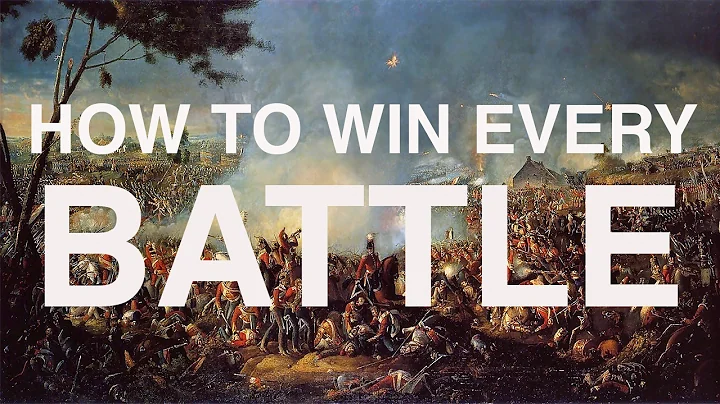

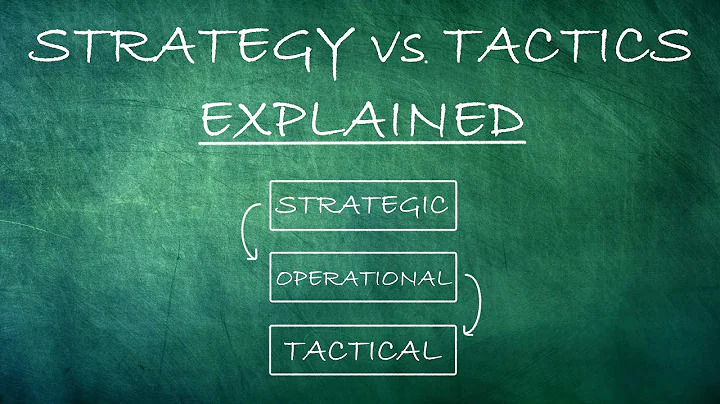


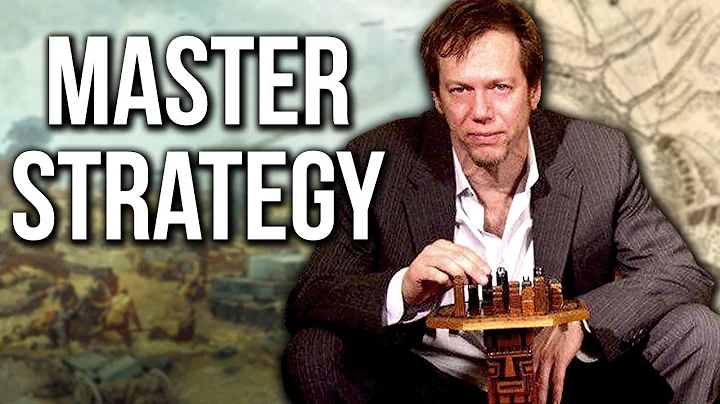
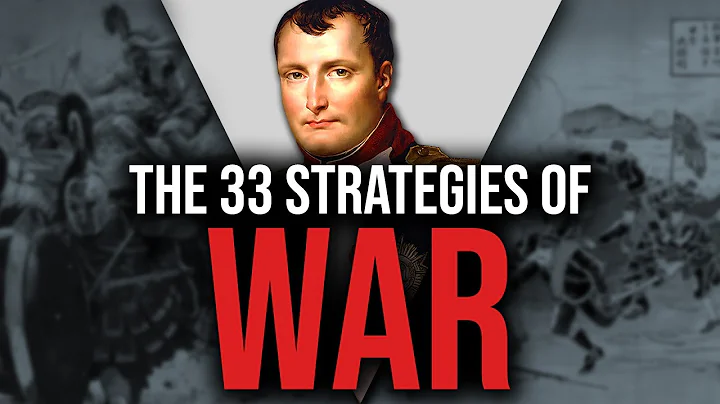


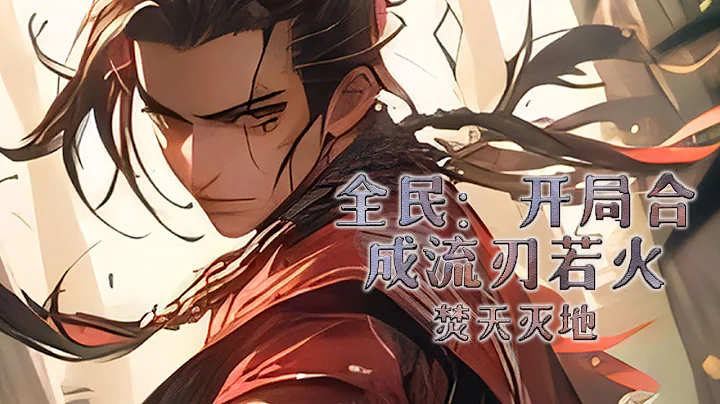







![✨A Will Eternal EP 01 - 106 Full Version [MULTI SUB] - DayDayNews](https://i.ytimg.com/vi/PkAfGiXQK_U/hq720.jpg?sqp=-oaymwEcCNAFEJQDSFXyq4qpAw4IARUAAIhCGAFwAcABBg==&rs=AOn4CLBTtc2yQP7WY40Q41f_lIF2Yj_WKA)
![✨Tales of Demons and Gods EP 01 - EP 123 Full Version [MULTI SUB] - DayDayNews](https://i.ytimg.com/vi/GsjaaYb8-PA/hq720.jpg?sqp=-oaymwEcCNAFEJQDSFXyq4qpAw4IARUAAIhCGAFwAcABBg==&rs=AOn4CLC7CWXf9KmbWVf1h_85eEEHGDLWRA)